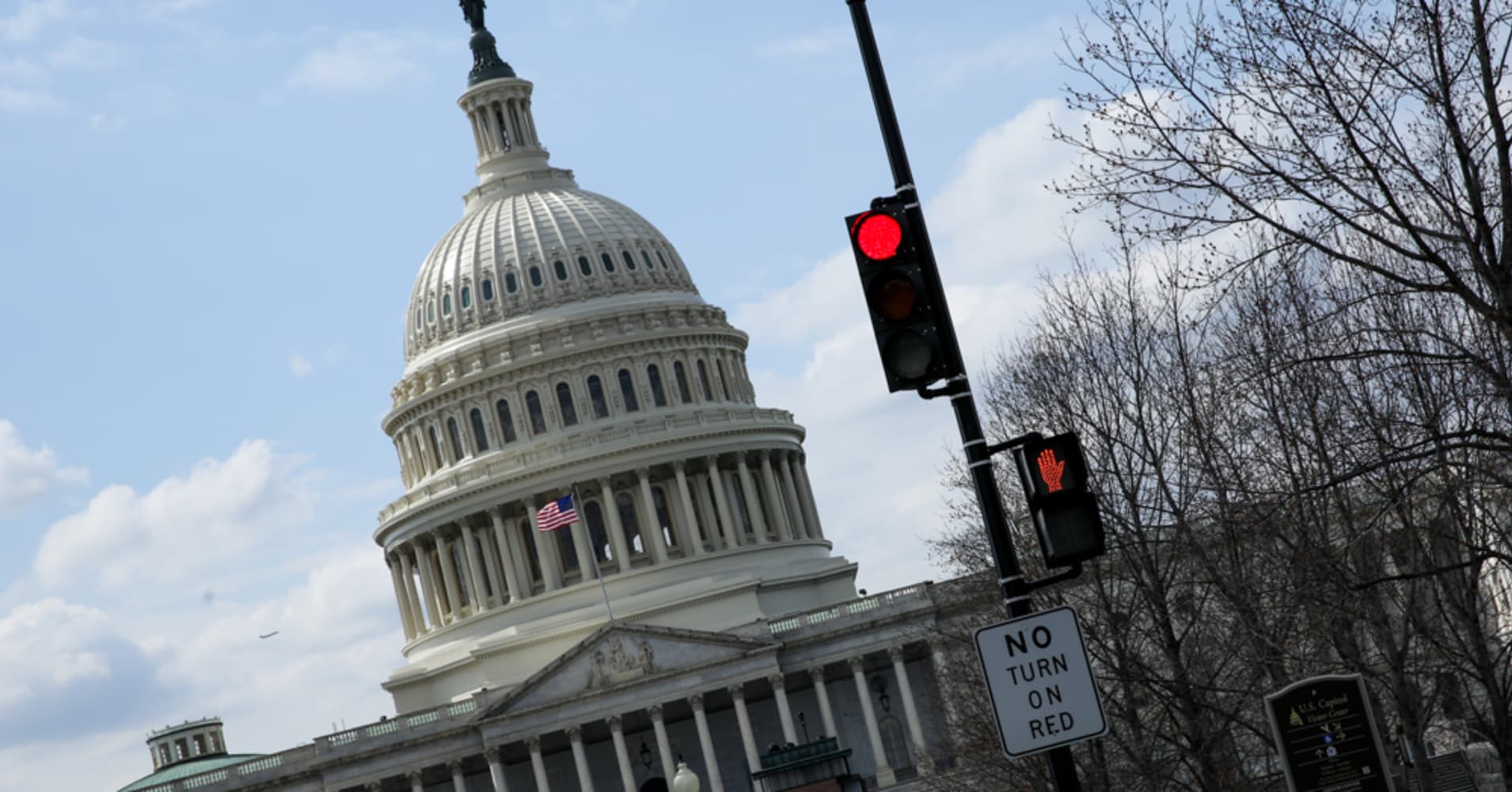
Democrats look to have an edge in their bid to flip the House in the final days of the most expensive midterm election ever.
The party will try to take control of the chamber Tuesday as they compete for dozens of Republican-held congressional seats across the country. Democrats need to win a net 23 GOP-held districts in order to flip control of the House, and are favored to reach that target. Still, only minor shifts across the House map could help Republicans cling to a majority.
A record stream of cash has fueled the party's push to check President Donald Trump – and the GOP's bid to hang on to control of Congress. Campaigns, parties and outside groups had already spent $4.7 billion by Monday in congressional races, and are projected to shell out more than $5.2 billion by the end of the election cycle, according to the Center for Responsive Politics. It tops a previous record of about $4.2 billion.
Democratic campaigns have largely drubbed GOP candidates in House swing-district fundraising. It has forced the House Republican campaign arm and outside groups to spend heavily in those contests to catch up.
House control has enormous stakes. Not only will it help to determine the country's path on health care, tax and immigration policy, but also it will shape whether Congress looks more deeply into Trump's finances or potentially pursues his impeachment.
Entering the campaign's final days, here's how top forecasters view the fight for the House, as well as the races that have drawn the biggest share of the record cash flow:
- Democrats and Republicans will jockey for House control on a vast battlefield. The nonpartisan Cook Political Report considers 73 out of 435 races competitive this year. The GOP holds 69 of those districts, giving Democrats bountiful opportunities to pick up seats.
- The forecaster lists Democrats as the favorite to flip 15 net seats. If they do so, they would have to gain a net eight districts out of 29 toss-up races to reach a majority. Cook expects the party to flip 30 to 40 seats, up from an estimate of 25 to 35 last month, according to the site's House editor Dave Wasserman.
Wasserman tweet
- Another nonpartisan analysis site, Sabato's Crystal Ball, lists Democrats as favorites to flip 17 net seats. The party would have to gain another six districts out of 21 remaining ones it considers toss-ups in order to take control.
- Democrats are strong favorites to take the House, according to data journalism site FiveThirtyEight. Its forecast gives the party an 85 percent chance of flipping the chamber, projecting an average gain of 38 seats. That still gives Republicans a 15 percent chance to hold the chamber. FiveThirtyEight's editor in chief Nate Silver has noted that, if Republicans even moderately outperform current polling, they could hold on to enough seats to keep House control.
The list of most expensive House races — by both candidate and outside spending in the primary and general elections — shows some areas that donors and the parties think will decide the majority. Five of the 10 most expensive contests sit in California swing districts, where big spending started early as Democrats tried not to get locked out of the general election due to the state's nonpartisan "jungle" primary system. Republicans hold all 10 districts where the most money has gone.
Georgia's 6th District, the site of a hotly contested special election last year and another competitive race Tuesday, has drawn about $80 million this cycle, more than any other district. Here are the other top money districts, by candidate and outside spending in both the primary and general elections, according to the Center for Responsive Politics, along with Cook's race rating:
- 1. Georgia 6: $80.1 million (Republican Rep. Karen Handel vs. Democrat Lucy McBath. The money total includes a competitive 2017 special election that Handel won. Cook rating: Lean R)
- 2. California 39: $34.2 million (Republican Young Kim vs. Democrat Gil Cisneros. It is open due to GOP Rep. Ed Royce's retirement. Cook rating: Toss-up)
- 3. California 48: $32.7 million (Republican Rep. Dana Rohrabacher vs. Democrat Harley Rouda. Cook rating: Toss-up)
- 4. Washington 8: $29.5 million (Republican Dino Rossi vs. Democrat Kim Schrier. It is open due to GOP Rep. Dave Reichert's retirement. Cook rating: Toss-up)
- 5. New York 19: $28.2 million (Republican Rep. John Faso vs. Democrat Antonio Delgado. Cook rating: Toss-up)
- 6. Montana at-large: $27.9 million (Republican Rep. Greg Gianforte vs. Democrat Kathleen Williams. The money total includes a competitive 2017 special election that Gianforte won. Cook rating: Lean R)
- 7. Pennsylvania 1: $27.7 million (Republican Rep. Brian Fitzpatrick vs. Democrat Scott Wallace. Cook rating: Toss-up)
- 8. California 49: $27.5 million (Republican Diane Harkey vs. Democrat Mike Levin. It is open due to GOP Rep. Darrell Issa's retirement. Cook rating: Lean D)
- 9. California 25: $27.2 million (Republican Rep. Steve Knight vs. Democrat Katie Hill. Cook rating: Toss-up)
- 10. California 45: $26.9 million (Republican Rep. Mimi Walters vs. Democrat Katie Porter. Cook rating: Toss-up)
Outside groups, including party campaign arms and unaffiliated pro-party PACs, have kept piling cash into the most important House races in the election's final push. The organizations shelled out more than $340 million in the House battle from Oct. 25 to Oct. 31, according to the Center for Responsive Politics.
More than $200 million of that sum went to races Cook rates as toss-ups. Nearly $150 million of that sum went for Democrats, while about $67 million backed Republicans.
About $64 million in outside cash went into contests rated as "lean" Democrat — overwhelmingly in favor of Democrats. Another $50 million went into districts listed as "lean" Republican, about evenly split between the parties.
via IFTTT
No comments:
Post a Comment